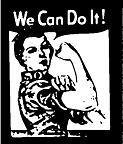home / teaching reading / homeschooling / gifted kids / breastfeeding / crafts |
|
|
"A good education for every child
does not mean the same education for every child. " Please use what works for you and your
child and ignore the rest. Every
child is different. If this
information does not seem to be a good fit for your particular child, then
keep looking and experimenting until you find what works. This Web Page by Pauline
Harding for Art Nurk, hardingpj@yahoo.com |
Choosing books There are a wide variety of books out there to choose! Here are some thoughts. Choose both fiction and non-fiction. When choosing non-fiction, think about what’s going on in the child’s life. Did you go to the zoo? Choose an animal book. Is Halloween coming up? Choose a book about costumes or pumpkins. Children can understand stories that are much more complex – vocabulary-wise and story-wise – than they can read on their own. Be sure to read both easy-to-read books and longer, more complex books that are several years above their reading level (but not beyond their comprehension level). Jim Trelease also cautions that you should consider their emotional level. Check my web site for a list of Gentle Chapter Books for Young Gifted Readers – http://www.geocities.com/hardingpj It’s important to read aloud some easy-to-read books, especially those kids ask for again and again. These books will likely be the first ones that they attempt to read on their own, and their familiarity (even memorization) will help considerably. If a child already knows the basic story, and the rhythm of the words, it is a much easier task to try to read them. Also particularly useful are books that are predictable (with the same words or phrases repeated throughout the book), and/or that have a strong rhythm and/or rhyme. Again, they make it easier for a new reader to work out the text. Choose books YOU like – you can be genuinely enthusiastic about them. (That’s another argument for reading good literature rather than textbooks!) Before you buy a book, remember -- you may have to read it a lot of times!! Theme Nights It’s fun to pick a theme, like “cats”, then read several things that relate to the theme. You could choose an easy-to-read cat story, a harder cat story, a non-fiction book about cats, and a couple of poems. If you like this kinds of thing, you might like Unit Studies. Unit Studies Some homeschoolers use an approach called unit studies. It’s pretty easy to do, and it’s particularly good for families with several children. For example, a fun topic for young children would be “Apples”. You could choose two books about apples – one for you to read, one an easy reader for the child to read (if they can). Add a book about Johnny Appleseed, or one about apple crafts or one about seeds. Now pick an activity or two – make prints of an apple half, bake an apple pie, go to an orchard, or have a friend or two over for an apple tasting party with several varieties of apples. Read the books, talk about them, do the activities, Voila! You’ve just done a unit study! No need for heavy planning or scheduling – just do it while you’re interested then move on. Ideas for topics are plentiful – just scan your library’s non-fiction shelves and see what appeals to you. One of our most valuable unit studies was Transportation. The week we studied Roads turned out to be a great foundation for studying history – we continue to draw on the ideas we uncovered during this study. Do not worry about “gaps” at this age! The elementary years are ideal for dipping in and getting a taste of all kinds of subjects. In middle school, kids will go back and do more formal, in-depth, organized study of thing like history and science. Take care of the basics - learn to read and write, get daily practice in math. The rest can be a wonderful exploration of all kinds of things that catch your interest. PoetryWe love to cuddle up on a cold winter morning with lots of blankets and lots of poetry books. We take turns reading poems to each other. Or try a poetry picnic – invite friends to come and read their favorite poems to the group. We like Shel Silverstein, Jack Prelutsky, and Favorite Poems Old and New edited by Helen Ferris. Other FavoritesHomer Price, Milly Molly Mandy, Wizard of Oz, The Night the Bed fell (James Thurber), Fairy Tales, Series fiction, Comic Books |
